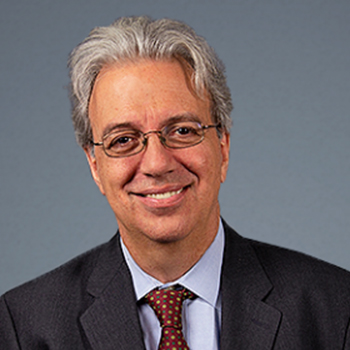Alessandro Doria, MD, PhD, MPH
-
Researcher
-
Genetics and Epidemiology
Senior Investigator
Section Head, Genetics and Epidemiology
Co-Director, Molecular Phenotyping and Genotyping Core
Dr. Doria is a Senior Investigator in the Section on Genetics and Epidemiology as well as Co-Director of the Molecular Phenotyping and Genotyping Core of the Joslin Diabetes Center. He is also a Professor of Medicine at Harvard Medical School and a Professor in the Department of Epidemiology at the Harvard T.H. Chan School of Public Health. Dr. Doria received his medical degree and his doctorate in endocrinology and metabolism from the University of Padua in Italy, after which he completed a research fellowship at the Joslin Diabetes Center. Prior to coming back to the Joslin as a faculty member, he was a Senior Lecturer/Honorary Consultant in Endocrinology and Diabetes at Guy's Hospital and the University of London in Great Britain. He currently serves as an Associate Editor of Diabetes - the journal of the American Diabetes Association.
In the area of coronary artery disease (CAD) – one of the most important causes of morbidity and mortality in diabetes – he has made three major discoveries:
1. He found that the 9p21 CAD locus – the strongest genetic factor contributing to CAD in the general population – plays an even larger role in Type 2 diabetes, due to a synergism with poor glycemic control (JAMA 2008). Since the 9p21 locus regulates the expression of cyclin-dependent kinase inhibitors, such interactive effect implicates alterations of the cell cycle in the atherogenic effects of hyperglycemia, suggesting this pathway as a novel target for preventive therapies.
2. He has identified a novel CAD locus that influences cardiovascular risk only in the presence of diabetes (JAMA 2013). This is the only CAD gene specific to diabetic subjects that has been identified to date. The CAD-predisposing variant at this locus is associated with lower expression of the GLUL (glutamine synthase) gene and with a distinctive metabolic profile implicating glutamate metabolism and the gamma-glutamyl cycle as novel targets to sever the link between diabetes and atherosclerosis.
3. He has discovered two genetic markers that influence the cardiovascular effects of intensive glycemic control and can be used to select diabetic patients who are most likely to derive benefit rather than harm from this intervention (Diabetes Care 2016). These findings illustrate how gene x environment interactions can be harnessed to maximize the cost-effectiveness of diabetes treatments through precision medicine algorithms.
In the area of diabetic kidney disease (DKD) – the other major cause of morbidity and mortality among diabetic patients – Dr. Doria has identified serum uric acid as a predictor of kidney function decline in Type 1 diabetes (Diabetes Care 2010). Based on this observation, he has designed and is now the Co-PI of a major multicenter clinical trial investigating whether the urate-lowering drug allopurinol can prevent early kidney function loss in Type 1 diabetes (PERL study, NCT02017171). The largest RCT funded by the NIH in the DKD area, PERL has several transformative features such as: 1. the focus on Type 1 diabetic patients in the early stages of DKD, 2. the inclusion of diabetic subjects who are losing kidney function in the presence as well as in the absence of albuminuria, and 3. the use of measured rather than estimated glomerular filtration rate as the primary outcome. With all the participants being now randomized, results are expected in the second half of 2019.
In parallel with his research on diabetic complications, Dr. Doria has also been studying maturity onset diabetes of the young (MODY) – a form of familial diabetes. He has identified BLK (PNAS 2009) and APPL1 (AJHG 2015) as new MODY genes and previously unrecognized modulators of insulin synthesis and secretion.
Medical School: University of Padua (Italy)
Doctorate: University of Modena (Italy)
Master of Public Health: Harvard School of Public Health
Fellowship: Joslin Diabetes Center
Residency: University of Padua (Italy)
2018 Edwin Bierman Award, American Diabetes Association

